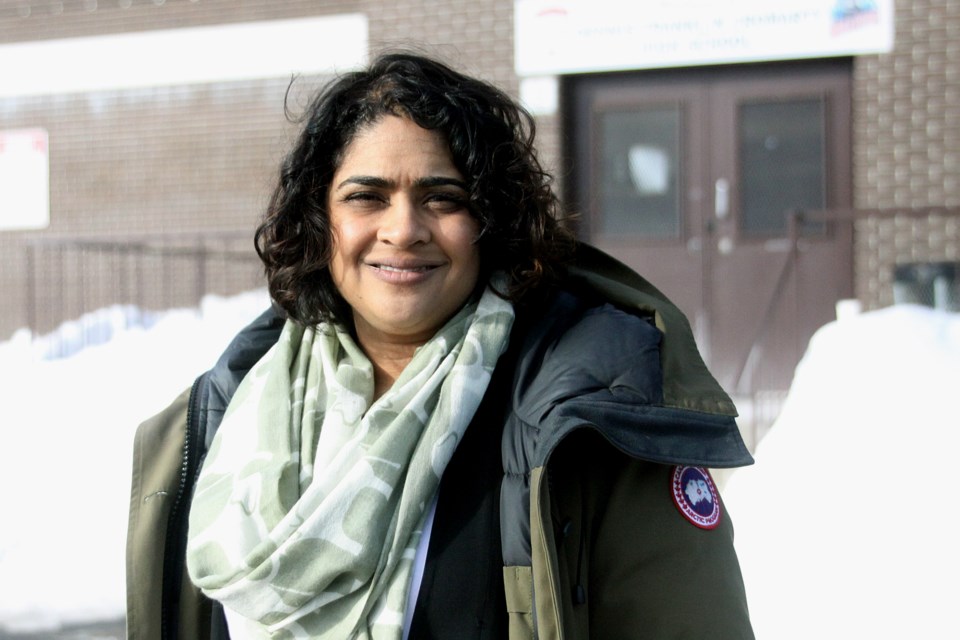THUNDER BAY -- Ontario's human rights commissioner believes the time to act is now to implement recommendations at addressing racism within the Thunder Bay police force.
The Office of the Independent Police Review director late last year released a report detailing its system review of the Thunder Bay Police Service, which found that systemic racism exists at the institutional level within the force, particularly relating to discriminatorily inadequate Indigenous death investigations..
The report prepared by OIPRD director Gerry McNeilly resulted in 44 recommendations aimed at various aspects of policing and policies within the police service, including sudden death investigations, missing persons cases and addressing racism.
Ontario Human Rights Commission chief commissioner Renu Mandhane, who arrived in Thunder Bay on Thursday for a two-day visit, said those recommendations provide a road map to move forward.
“What we’ve seen is that it has to be quick action. It can’t be three years later we’re still considering how to implement the report,” Mandhane said.
“I think there is a real moment right now for the city and the police service to rebuild trust because there’s hope. I think you need hope for that, to soften and for those relationships to be repaired."
Mandhane, who is well familiar of the concerns raised by Indigenous leaders and community members for years leading up to the publication of the OIPRD report and the subsequent Ontario Civilian Police Commission probe of the Thunder Bay Police Services Board, suggested that not following through with the recommendations will further damage those relationships.
"I’m sure people felt vindicated by hearing their experiences echoed by these two reports and now I think it pivots to will this cause action," Mandhane said. "I think the worst thing that could happen is when people’s concerns do make their way into these reports and nothing is done, it almost sends a worse signal than when the concerns were dismissed.”
The financial impact of the recommendations began to be felt by municipal leaders during this year's budget review process, when the police board made a request of an additional $1.08 million to start implementing some of the solutions, such as additional officers for a newly created major cases unit, body-worn and in-car cameras and the costs of an external investigator for a peer review process.
Mayor Bill Mauro has been vocal about the financial implications of the recommendations on the city, and advocating for senior levels of government to come to the table.
The issue was raised at Queen's Park by Thunder Bay-Superior North MPP Michael Gravelle, who asked Community Safety and Correctional Services Minister Sylvia Jones whether the Progressive Conservative provincial government would provide financial support to Thunder Bay.
Jones responded that she has been in communication with Mauro and that she recognized the importance of the recommendations but did not give any indication that the province would be providing help.
"I think it's very encumbent on the Thunder Bay Police Services Board and the police to do the work that is necessary to make sure that their standards are appropriate across Ontario," Jones said.
Mandhane, who emphasized that it's not the human rights commission's place to suggest which level of government foots the bill for the costs, said debates about who pays can often overshadow the work that is required to implement the recommendations.
“What we care about is that the solutions get implemented in a timely manner,” Mandhane said. “But obviously we would expect the province and the municipality would work together to address the systemic concerns and clearly it will require an investment of funds. Where that comes from, that’s up to them to decide.”
A meeting between Mandhane and Mauro during her time in Thunder Bay had been requested but one was unable to be scheduled. She said she would be open to meeting with the mayor during any future trip to Toronto.
Mandhane made it clear that she believes the police is just a starting point for combatting racism in Thunder Bay.
"I think there's a lot the city can do to address racism just more generally because the clear sense you get in reading the reports is this isn't only about the police," she said. "It's about the community where there is a level of racism that is experienced by community members that is concerning."
